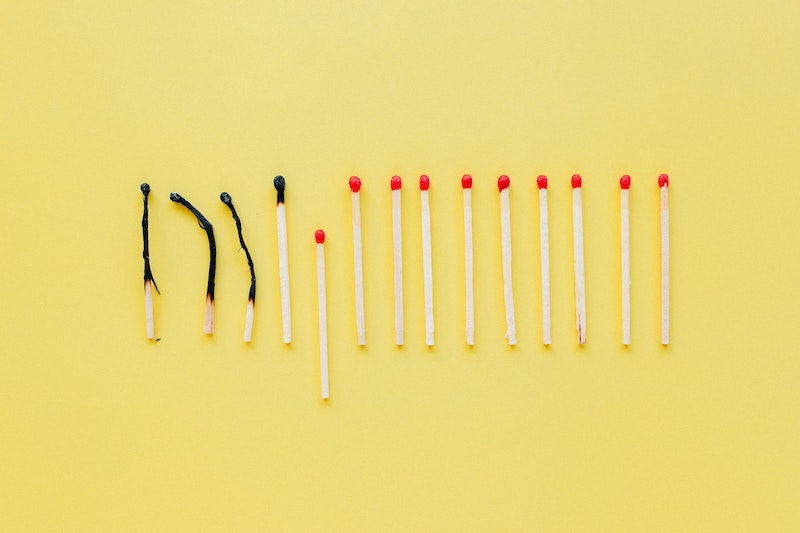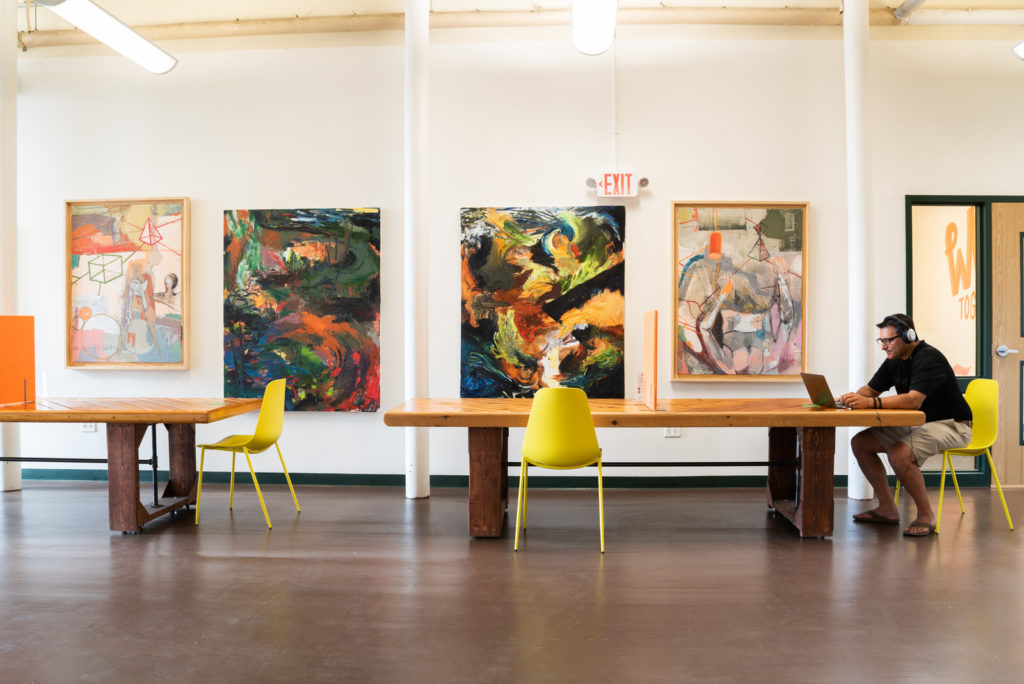Burnout and beyond: What we’ve learned from COVID at Groundwork

Friends, I don’t need to state the obvious– for the coworking industry, the past year has been incredibly hard. While we don’t have official statistics yet, anecdotal evidence tells us that hundreds of coworking spaces around the world have closed their doors, while many others are struggling for dear life. I write this post while feeling utterly exhausted, yet hopeful.
I’m hopeful that we will carry forth with a renewed sense of purpose. That we will continue to push for a better work-life balance, for less stress, for less striving. That we will truly see and understand the preciousness of our own lives, after so much loss.
Recovery from a culture of burnout
While I can tentatively say we’re beginning our journey to COVID recovery, my personal recovery began back when COVID started. Suddenly, the pandemic took everything I had been striving for out of my hands. For the first time in several years, I was sleeping through the night. Of course I was worried about losing Groundwork altogether, but that anxiety has followed me since day one of starting the business. This was different because it wasn’t my fault.
I recently read an insightful article on HBR entitled, Beyond Burned Out. In it, author Jennifer Moss states that self-care is not the antidote to burnout. Closing your eyes and taking 5 deep breaths every morning is not enough to combat the chronic stress that comes from an unsustainable workload. Moss argues that it’s not up to employees to set boundaries, but that any effort to fix burnout must come from upstream in an organization.
While this is absolutely true, I’d add that we need to go even further upstream, beyond bosses of organizations, to look at the cultural causes of burnout. Why, in the United States, do we work longer hours and enjoy less quality of life than most other countries? Is it our insatiable consumerism? Or the lack of a social safety net that drives us to work until we fall apart?
I hope we can examine these questions together as we pick up the pieces of the past year.

Reinventing how we work
In the coworking industry we are awaiting a boom that is sure to follow this year’s bust. Corporate headquarters are closing down and we are finally embracing the notion of truly flexible work. But we’re also seeing that more flexibility can mean less boundaries, and yes, more burnout.
As a coworking space operator, I’m looking at how I might help our members strike a better balance. We’ve long been in the business of educating our market about what coworking is; perhaps now we must shift to educating managers and decision-makers on how to manage a remote workforce. The approach is likely not a one-size-fits all policy, but something more tailored to individual needs. A late-career manager with kids at home will likely need a different arrangement than an entry-level employee living in a shared apartment.
Repairing relationships
Most of us have worked hard to maintain our inner-circle relationships through the pandemic, but what about the outer circle? I’m starting to see our most cautious members return to the coworking space after getting fully vaccinated. Many have spent the entire year mostly at home, with little face-to-face contact.
For all of our boasting about community, it’s always been a bit like pulling teeth to get adults to actually talk to each other and make friends. It’s probably one of the hardest parts of running a coworking space. And now it seems like the pandemic has magnified some of our worst tendencies– we can avoid talking to the neighbors and nobody will question our motives.
I hope we can be intentional about repairing our connections to our outer-circle: the neighbors, baristas, janitors, post-office clerks… our fellow coworking space members. These connections are vital for feeling a sense of belonging and intimacy with our communities.
This is a golden opportunity to rebuild… everything.
A disruption of this scale to life as we know it has never happened in my lifetime. From here, things could continue to unravel. Or it could be a great turning point– a passage of healing and wisdom. Which one will it be?
You and I get to decide. Let’s do the work.
- Meet Our General Manager: Nicole Cosme - February 26, 2024
- Can I use a coworking space for Google My Business? - April 26, 2023
- Marketing Lab: The Best Business Resource on the South Coast You Didn’t Know About - March 23, 2023
